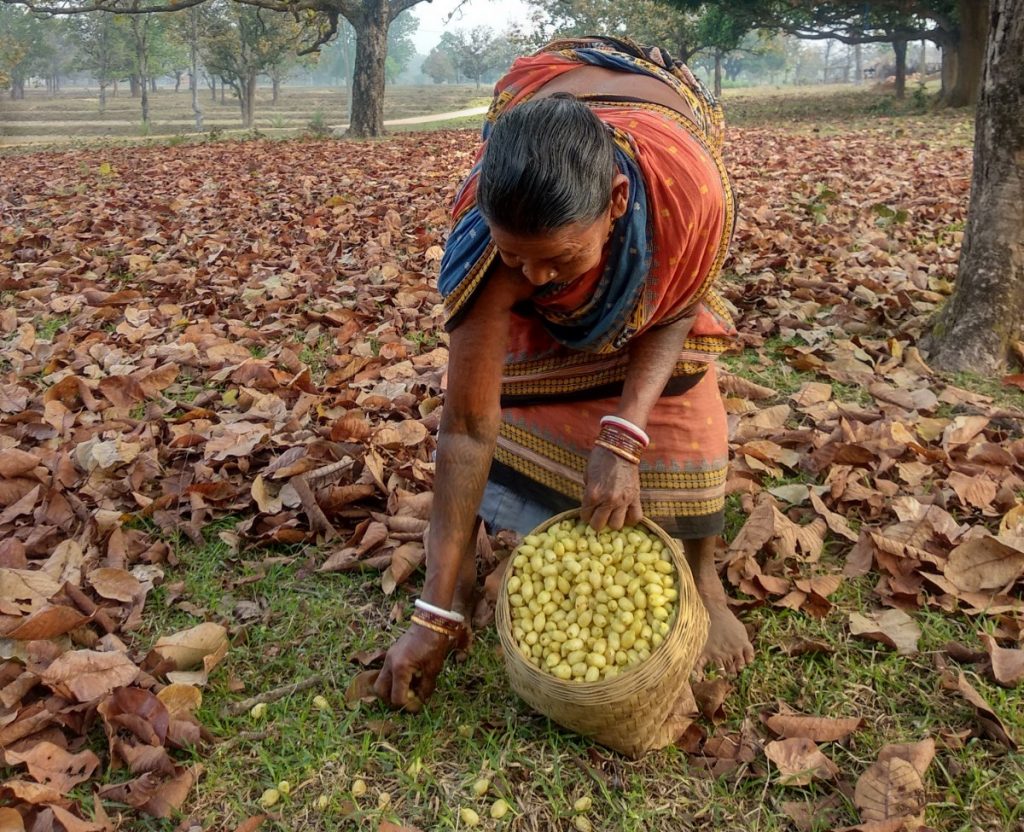Keonjhar: Keonjhar district has a vast swathe of dense forest, which has become a source of livelihood for the forest dwellers as well as poor people living in surrounding villages. They depend on the forest for eight months a year to eke out a living. Out of several forests produced, Mahua Flower is bringing them more profits this season. Mahua flower is nature’s gift to the poor tribals. Each tree provides Mahua flowers worth more than Rs 1,000 on average in a year if properly managed.
Hence the tree not only keeps the environment green but also is a major contributor to income for the tribal villagers. Due to a lack of proper management, the tribals are forced to sell the Mahua flowers collected by them at slim prices. Due to this not only the tribals, but the state government also loses lakhs of rupees as revenue every year. The traders are buying Mahua flowers at cheaper rates during the flowering season and earning more profits by selling those to liquor traders. Mahua trees blossom in the spring from February to April and tribal people collect the flowers from under the trees during this time. Banspal, Telkoi, Sadar, Jhumpura, Ghatagaon blocks of Keonjhar district are harvesting more Mahua flowers than other blocks.
For the Mahua collection, one can obtain a license from the panchayat. Similarly, the panchayat samiti is the authority to decide the minimum support price of the Mahua flower. But the ground reality is different. Many traders are allegedly procuring the flowers at throw-away prices without obtaining license. Gopal Munda, a member of a tribe in Banspal said, “As we have no storage facility, we feel it is better to sell the collected Mahua flowers immediately. Many times the traders cheat us in both rate and weight during procurement.” “Every year huge quantities of Mahua flowers are collected from Keonjhar forests, but a lion’s share of the profit goes to the pockets of middlemen and traders as the gullible tribals are fleeced,” said Bhakta Mohanty, a social activist. Mamata Juang, a tribal woman of Gonasika, said, “In the early morning all family members including the children go to the forest to collect Mahua flowers these days. But we do not get enough money for the hard work as we have to sell those at lower prices.” Owing to massive deforestation for mining and industries, timber loot and forest encroachment by outsiders, the forest cover is shrinking fast and consequently, the collection of forest produce has been dwindling in the last few years. On the other hand, distressed sales due to the lack of a proper market to sell forest produce, the socio-economic condition of the poor tribals has remained dismal.
